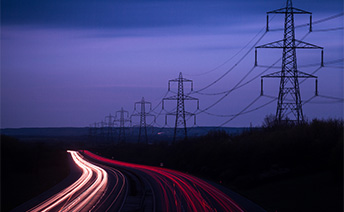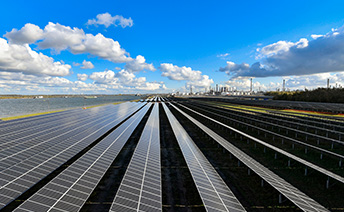Vereniging Energie voor Mobiliteit en Industrie (VEMOBIN, formerly VNPI)
VEMOBIN represents energy suppliers for transport.[1]
Membership of board/executive committee: Shell is a member of the board.
- 2022 assessment outcome: Aligned
- 2021 assessment outcome: Aligned
Summary
Shell benefits from its membership of VEMOBIN, especially in relation to industry and transport public policy.
Shell welcomes the rebranding of Vereniging Nederlandse Petroleum Industrie (VNPI) to VEMOBIN in 2022, which reflects the energy transition journey of its members.
We have found VEMOBIN to be aligned with our climate and energy transition-related policy positions.
We will remain a member of VEMOBIN. We will continue to engage the association on climate and energy transition topics. We will continue to track alignment between VEMOBIN’s climate and energy transition-related positions and our own.
Further information
Click on the sections below to read more.
- VEMOBIN has stated support for the goals of the Paris Agreement.[2] [3]
- VEMOBIN has stated that it sees the Dutch Climate Agreement (Klimaatakkoord) as an opportunity, and that it will guide the industry towards carbon neutrality.[4]
- VEMOBIN has stated that it welcomed the EU Green Deal.[5]
- VEMOBIN has stated support for “carbon pricing on the largest possible geographical scale” and that it supports the EU Emissions Trading System (ETS).[6]
- In its December 2021 response to the Dutch Coalition Agreement, VEMOBIN stated that it was critical of the Dutch government for increasing both CO2 pricing and the floor for ETS pricing.[7]
- In a 2021 paper, VEMOBIN stated that the Dutch government should consider companies’ investment opportunities in developing the Dutch “CO2 heffing industrie”, a CO2 pricing mechanism for industries in addition to the EU ETS.[8] VEMOBIN argued for the implementation of a hardship clause in the tax to prevent a lack of external infrastructure limiting companies’ CO2 emissions reductions.[9]
No position
- VEMOBIN has stated support for green hydrogen as one of the solutions for decarbonisation of the transport sector and called for government subsidies to further stimulate investment in electrolysers.[10]
No position
- VEMOBIN has stated support for carbon capture and storage (CCS), stating that it is the only technology that can realise large-scale CO2 reduction for high-temperature processes in industry before 2030.[11] VEMOBIN has stated that the upscaling of CCS deserves a similar urgency to the roll-out of renewable energy or decarbonisation of housing.[12]
- VEMOBIN has called for the Dutch government to expand its support for CCS by adding more forms of CCS to the SDE++ government subsidy scheme and remove the ceiling in the SDE++ for CCS.[13]
- In its December 2021 response to the Dutch Coalition Agreement, VEMOBIN stated its support for the Dutch government’s commitment to expand resources for CCS.[14]
No position
No position
- VEMOBIN has stated that the Dutch government should ensure that the supply of electricity from renewables continues to increase, as it is essential to the growth of green hydrogen production.[15]
- VEMOBIN has stated support for the use of some low-carbon gases, such as bio-LNG, in the energy transition.[16]
- VEMOBIN has stated support for the Dutch Climate Agreement target of a 25 Mt CO2 ceiling for road transport emissions, which includes an ambition to sell only zero-emission passenger cars by 2030.[17]
- In its December 2021 response to the Dutch Coalition Agreement, VEMOBIN stated support for the Dutch government’s ambition to accelerate support for zero-emissions transport through accelerating the installation of electric charging stations and scaling up hydrogen capacity.[18]
- VEMOBIN has stated support for the Dutch Climate Agreement target of a 25 Mt CO2 ceiling for all road transport emissions. To realise these targets, VEMOBIN has advocated for both consistent European policies and national incentives, for example through subsidies and tailor-made financing solutions for flagship projects.[19] [20]
- In 2022, VEMOBIN published a study “Zijn Low Carbon Liquid Fuels nodig voor de decarbonisatie van het transportsysteem in 2050?” on how low-carbon liquid fuels (LCLFs) can support the decarbonisation of the transport system by 2050. The study highlights the importance of LCLFs for achieving decarbonisation of the transport sector in line with EU targets and in transport subsegments that are hard to electrify.[21]
- VEMOBIN has stated the importance of CCS, hydrogen, advanced synthetic fuels and biofuels for decarbonising heavy industry sectors.[22][23]
- In its December 2021 response to the Dutch Coalition Agreement, VEMOBIN stated support for the government’s announcement that it would expand its financial support to the decarbonisation of heavy industry.[24]
- VEMOBIN has stated the importance of synthetic fuels and biofuels to support the decarbonisation of aviation and has called for the government to work on increasing the share of these fuels.[25] [26]
- VEMOBIN has stated the importance of synthetic and biofuels to support the decarbonisation of shipping and has called for the government to work on increasing the share of these fuels.[27] [28] [29]
[1] https://vemobin.nl/de-organisatie/
[2] https://vemobin.nl/themas/het-akkoord-van-parijs-als-cruciale-stap-voor-mondiale-klimaatinspanningen/
[3] https://vemobin.nl/
[4] https://vemobin.nl/themas/de-vemobin-ziet-kansen-in-het-klimaat-akkoord/
[5] https://vemobin.nl/themas/eu-green-deal/
[6] https://vemobin.nl/themas/standpunt-co2-beprijzing/
[7] https://vemobin.nl/actueel/reactie-vemobin-op-het-regeerakkoord/
[8] https://vemobin.nl/wp-content/uploads/2021/05/VNPI_Leaflet-regeerakkoord-2021-Online.pdf
[9] https://vemobin.nl/wp-content/uploads/2021/05/VNPI_Leaflet-regeerakkoord-2021-Online.pdf
[10] https://vemobin.nl/wp-content/uploads/2021/05/VNPI_Leaflet-regeerakkoord-2021-Online.pdf
[11] https://vemobin.nl/themas/co2-afvang-en-opslag-is-essentieel-voor-de-co2-reductieopgave/
[12] https://vemobin.nl/themas/co2-afvang-en-opslag-is-essentieel-voor-de-co2-reductieopgave/)
[13] https://vemobin.nl/wp-content/uploads/2021/05/VNPI_Leaflet-regeerakkoord-2021-Online.pdf
[14] https://vemobin.nl/actueel/reactie-vemobin-op-het-regeerakkoord/
[15] https://vemobin.nl/wp-content/uploads/2021/05/VNPI_Leaflet-regeerakkoord-2021-Online.pdf
[16] https://vemobin.nl/actueel/juridisch-steekspel-om-laadpalen-aan-de-snelweg/
[17] https://vemobin.nl/themas/de-co2-reductiedoelstelling-voor-wegverkeer-realiseren-2/
[18] https://vemobin.nl/actueel/reactie-vemobin-op-het-regeerakkoord/
[19] https://vemobin.nl/themas/de-co2-reductiedoelstelling-voor-wegverkeer-realiseren-2/
[20] https://vemobin.nl/wp-content/uploads/2021/05/VNPI_Leaflet-regeerakkoord-2021-Online.pdf
[21] https://vemobin.nl/wp-content/uploads/2022/04/VNPI_Noodzaak-van-Low-Carbon-Liquid-Fuels_2022_FINAL.pdf
[22] https://vemobin.nl/wp-content/uploads/2021/05/VNPI_Leaflet-regeerakkoord-2021-Online.pdf
[23] https://vemobin.nl/themas/co2-afvang-en-opslag-is-essentieel-voor-de-co2-reductieopgave/
[24] https://vemobin.nl/actueel/reactie-vemobin-op-het-regeerakkoord/
[25] https://vemobin.nl/wp-content/uploads/2021/05/VNPI_Leaflet-regeerakkoord-2021-Online.pdf
[26] https://vemobin.nl/themas/co2-afvang-en-opslag-is-essentieel-voor-de-co2-reductieopgave/
[27] https://vemobin.nl/wp-content/uploads/2021/05/VNPI_Leaflet-regeerakkoord-2021-Online.pdf
[28] https://vemobin.nl/actueel/juridisch-steekspel-om-laadpalen-aan-de-snelweg/
[29] https://vemobin.nl/themas/co2-afvang-en-opslag-is-essentieel-voor-de-co2-reductieopgave/










